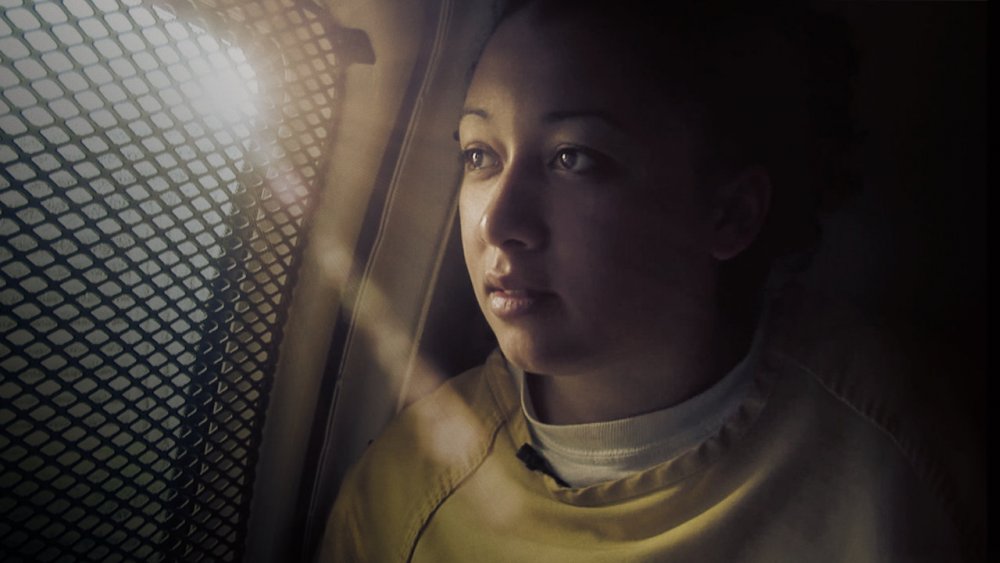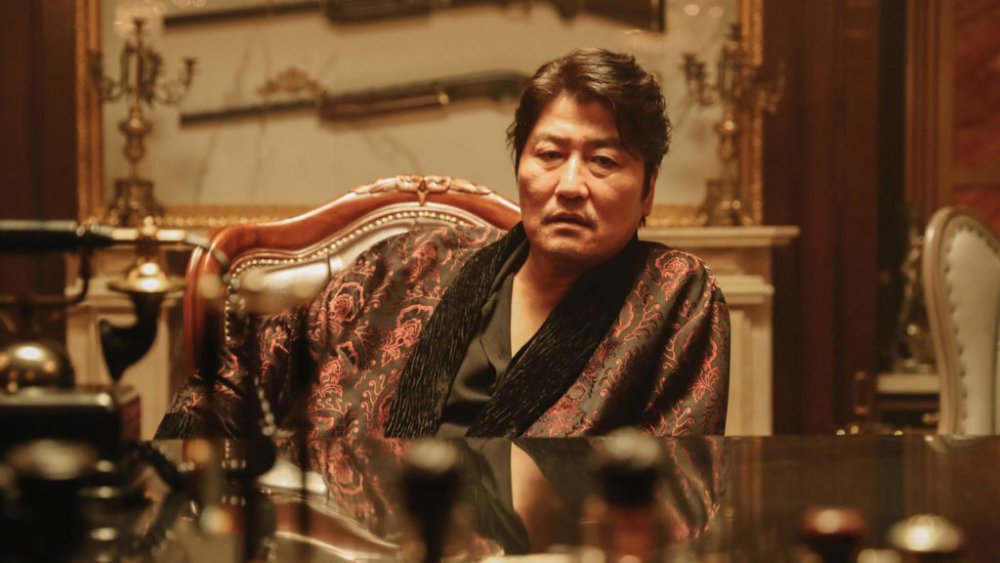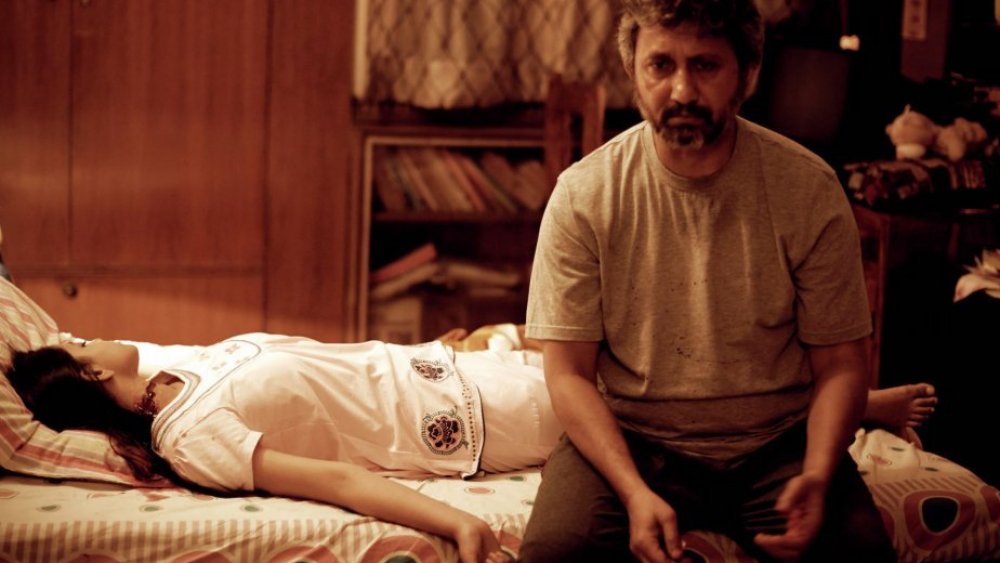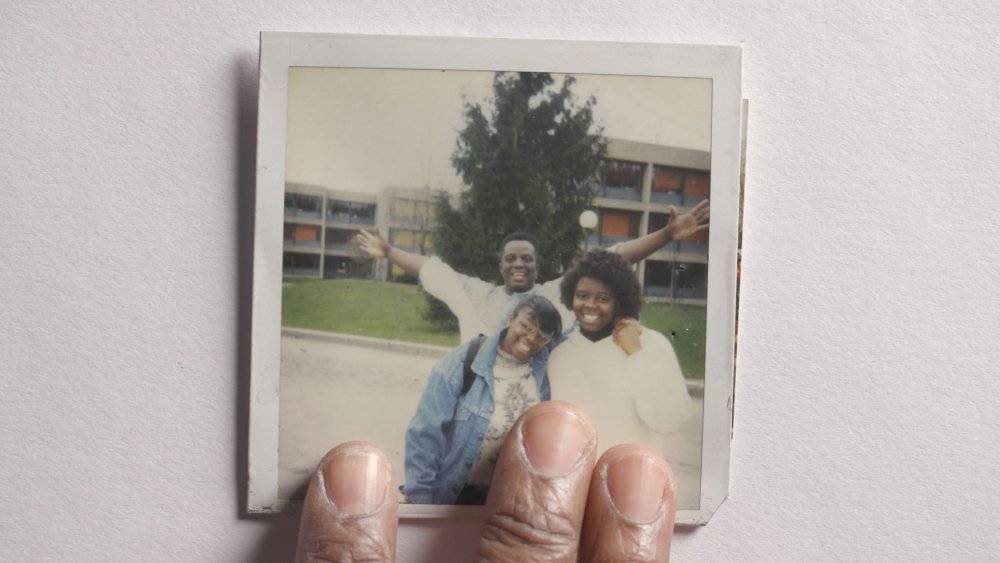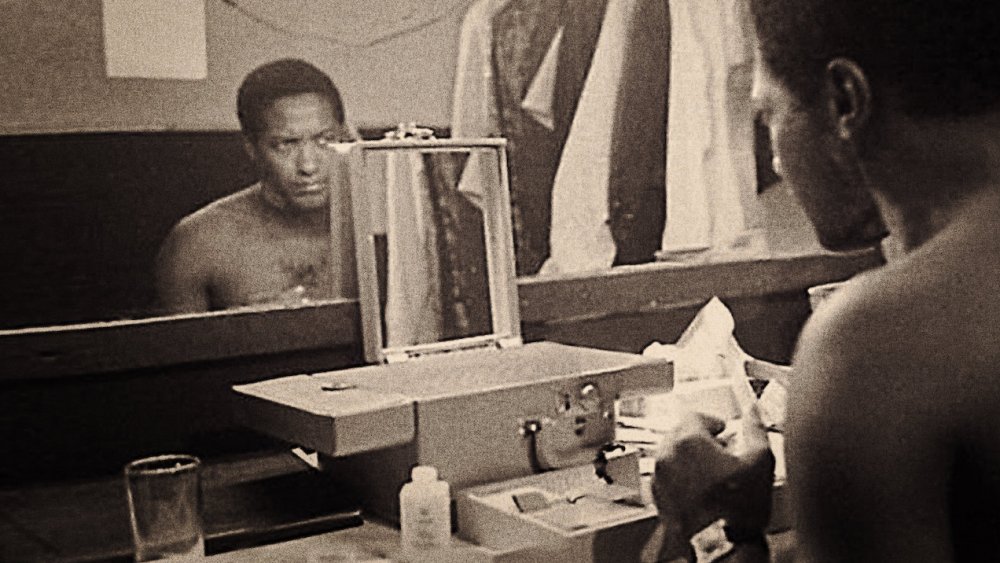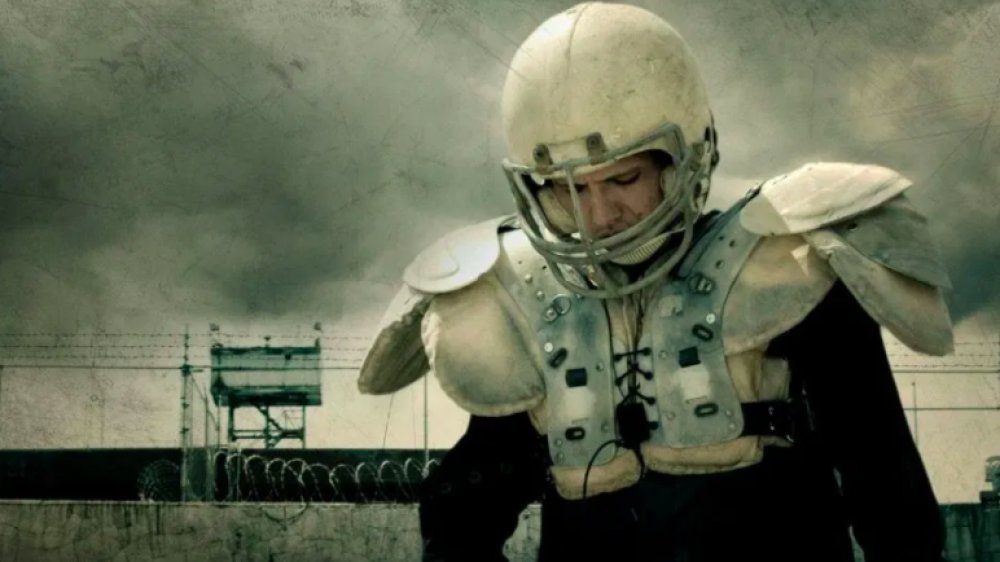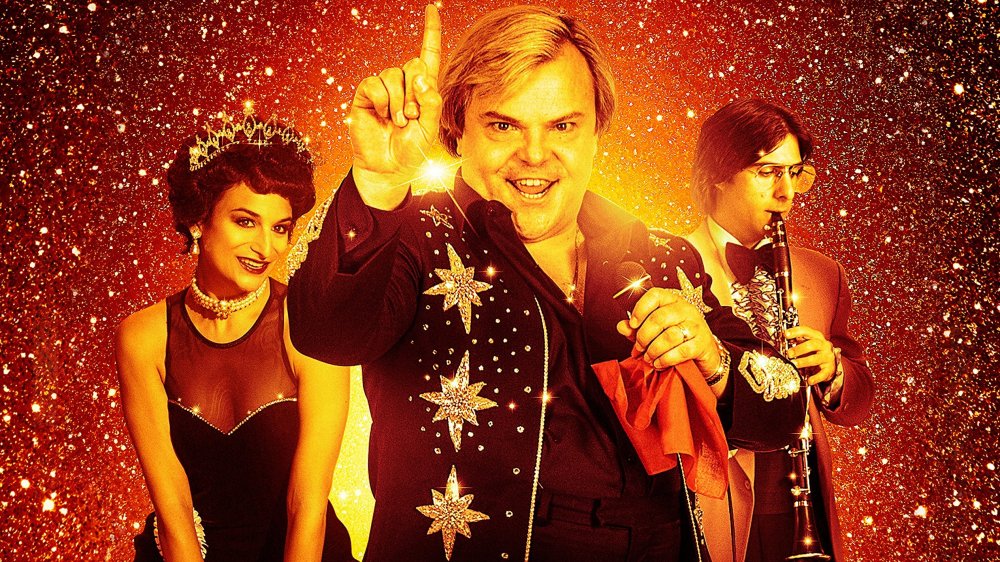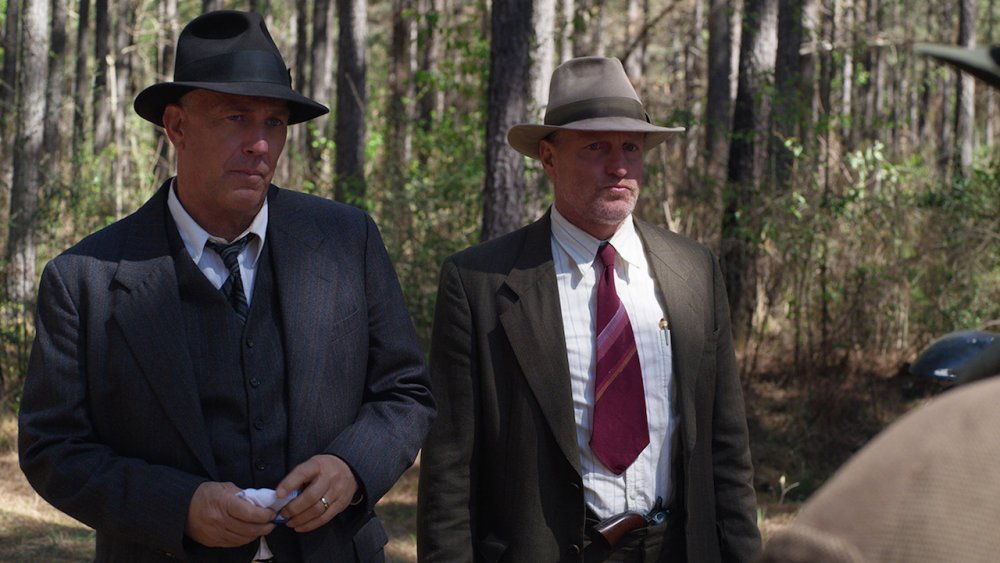Hidden True Crime Gems On Netflix You Need To Watch
This content was paid for by Netflix and created by Looper.
From murder mysteries to gangster heists, there's something about watching a true crime movie that makes you sit up and pay attention. The hair on the back of your neck may stand up, or you may get emotional — terror, sadness, anger, and intrigue are all fair game. How can they not be? These are real people, and real crimes... some too gruesome to even comprehend. But despite their heinous nature, we can't seem to look away, perhaps because truth is often much stranger than fiction.
We all know the stories of O.J. Simpson, Aaron Hernandez, and the West Memphis Three, but true crime goes far beyond those types of highly sensationalized cases. In fact, the lesser-known tales can be just as fascinating — and frightening.
Ever wondered about the story behind the men who helped gun down Bonnie and Clyde? Or what it's like to serve time in a Mexican prison? Or how about what it takes to commute a life sentence in this day and age? There's a whole host of under-the-radar crime stories just waiting to be unearthed. From illegal gambling rings to unsolved mysteries, here are some true crime flicks you may not know about — but should.
Murder to Mercy: The Cyntoia Brown Story
Convicted murderer Cyntoia Brown gained national attention in 2017, when the likes of Kim Kardashian, Rihanna, and LeBron James posted on social media about her appeal for clemency after being sentenced to life in prison at just 16 years old. The Netflix original documentary Murder to Mercy: The Cyntoia Brown Story delves into Brown's transformation from a once-troubled teen to prison reform advocate.
Accused of killing a 43-year-old john and robbing him, Brown claimed self-defense — and lost in court. But amidst the #MeToo movement the hashtag #FreeCyntoiaBrown took off and became a rallying cry against child sex trafficking and what some perceive as a broken criminal justice system.
When Brown was tried in 2004, she was seen as a prostitute — even though she was a minor being forced to sell sex by her boyfriend, a man nicknamed Cut-Throat. By 2017, views on women, minors, and sex trafficking had dramatically changed, opening up the door for Brown to finally have a real shot at freedom.
Directed by Daniel H. Birman, who first tackled the subject in the 2011 PBS documentary Me Facing Life: Cyntoia's Story, Netflix's Murder to Mercy deep-dives into Brown's life, from her tumultuous upbringing all the way through to her release from prison in 2019, when the governor of Tennessee commuted her sentence after she'd served 15 years in prison.
The Drug King
While most Americans may not be familiar with him, Lee Doo-sam is notorious in South Korea. In the 1970s, he went from small-time smuggler of gold and diamonds to a wealthy drug lord, becoming one of the top exporters of methamphetamine (also known as crystal meth or "crank") to Japan in the process. The Drug King is a South Korean crime drama based on his life story.
The '70s were a time of economic growth for South Korea, as it rose from the ashes of the Korean War to become a major exporter — and Doo-sam road the wave right along with it.
The film stars Song Kang-ho, who's best known to American audiences for his work in Oscar-winning director Bong Joon Ho's Snowpiercer, Parasite, and The Host, and Bae Doona from Sense8. It chronicles the rise and fall of a criminal, as Doo-sam goes from family man just hoping to provide for his wife and kids to a deeply compromised individual consumed by greed and addiction. Add to that a righteous prosecutor who sets his sights on the drug lord, and all hell breaks loose.
Filled with Tarantino-esque humor and stylistic elements reminiscent of Goodfellas or The Departed, The Drug King is mainly for fans of films like Scarface and Blow — or those who want to learn about an infamous piece of South Korean history.
Molly's Game
Meet "poker princess" Molly Bloom, who ran one of the world's most exclusive, high-stakes underground poker games that had Hollywood A-listers like Leonardo DiCaprio, Ben Affleck, and Matt Damon betting millions. She lived a glamorous life of excess that had her riding high — until it all came crashing down.
Molly's Game, based on the memoir of the same name, chronicles Bloom's meteoric rise through the ranks of underground gambling to become one of the most powerful empires on the scene. Starring Jessica Chastain, Idris Elba, and Kevin Costner, the biographical crime drama is the directorial debut of Academy Award- and Emmy-winning writer/producer Aaron Sorkin (A Few Good Men, The Social Network, West Wing).
The film follows Bloom as her dreams of becoming a world-class Olympic skier are crushed by an injury, and she sets out to find a new calling. After moving to Los Angeles she lands an office job that automatically comes with a side hustle in the lucrative world of underground gambling. When her boss unceremoniously fires her, she decides to run her own games — where the stakes get higher and higher. Eventually she's arrested as part of an FBI sting and must choose between outing her high-profile clients in exchange for leniency or potentially facing years in jail.
While few people saw it in the theaters, Molly's Game earned Oscar and Golden Globe nominations for best screenplay, and Chastain was nominated for best actress at the Golden Globes.
Guilty (Talvar)
A double homicide has gripped India's attention for years, after a 13-year-old girl and her family's servant were found murdered inside their home in 2008. The parents were immediately considered suspects, but the case was severely bungled by the police, causing a chaotic investigation that garnered sensational media coverage. The Hindi-language thriller Talvar, released internationally as Guilty, digs into the scandalous and complex case.
Starring the late Irrfan Khan (The Amazing Spider-Man, Jurassic World), the film views the case from three different law enforcement perspectives, in which the parents are either guilty or innocent. Director Meghna Gulzar and writer Vishal Bhardwaj researched the case for two years and found many contradictions, but still saw each viewpoint as having some validity.
Several conclusions have been reached over the years, as the case passed from one investigator to the next. But the main assumption is that the parents committed an "honor killing," in which one family member kills another because they think the victim has somehow shamed the family. In this case, it's believed that the 45-year-old servant was caught sexually assaulting the teenager and both were killed.
While the film explores several different paths of what could have really happened, in reality, the parents were always the main suspects and were eventually arrested and sentenced to life in prison. They appealed the decision and won, being released from jail and leaving the case unsolved to this day.
Roll Red Roll
The prevalence of "rape culture" — a hostile environment toward women and girls created through the use of misogynistic language, the objectification of women's bodies, and the glamorization of sexual violence — in the United States is undeniable. It is believed that one out of every six American women has been sexually assaulted.
The documentary Roll Red Roll looks to peel back the layers on one such case at an American high school, where several football players were accused of sexually assaulting a drunk, incapacitated teenage girl. Not only did they perpetrate the heinous act, they also proudly spread the word about their crime on social media.
The case was put on national blast in 2012 when members of the Steubenville, Ohio, high school football team publicly and repeatedly assaulted and raped an underage girl and graphically photographed the incidents. What ensued after was a "boys will be boys" cover-up that involved dozens of students, coaches, and faculty. Two of the players were charged and sentenced to prison for sexual assault, and several adults were indicted for obstructing justice, tampering with evidence, and lying to a grand jury.
While hard to watch, Roll Red Roll is still a must-see, as it carefully reconstructs the night of the crime and delves into the psyche of why so many people tried to protect the assailants and discredit the victim. It raises the question: Why are people willing to put their daughters at risk in order to protect their sons?
Strong Island
Racial injustice targeting African-Americans has become a hot-button issue in America in recent years. The Black Lives Matter movement began with the shooting death of 17-year-old Trayvon Martin in 2012 and has continued into 2020 with the death of George Floyd at the hands of police officers. Both were unarmed black men.
But this kind of injustice didn't start in 2012; it has been simmering under the surface of American culture for generations. And Strong Island looks to shed light on another questionable case, in which a 24-year-old African-American teacher was shot and killed by a white mechanic who was never charged with murder even though, again, the victim was an unarmed black man.
In 1992 William Ford Jr. went to an auto shop to confront Mark Reilly, an employee who was supposed to be repairing a car for Ford. The two had gotten into an accident and struck a deal that Reilly would repair the car in lieu of Ford filing a police report. Frustrated at how long it was taking, Ford went to the shop — where he was shot dead. Reilly was never charged, as he claimed self-defense. But Ford's family believes he was murdered and that justice was not served because of the color of his skin.
Strong Island, directed by Ford's brother, covers a wide swath — from systemic racism to the nuts and bolts of the case — but it's really the story of a grieving family who's never gotten over the loss of their loved one and wants to see seismic cultural change.
ReMastered: The Two Killings of Sam Cooke
Singer Sam Cooke was shot and killed at a cheap Los Angeles motel in 1964 at age 33, after a woman who worked there claimed he threatened her. (That same night another woman alleged he had kidnapped her and tried to rape her.) It's always been an odd tale, with some family, friends, and fans questioning the validity of the details. ReMastered: The Two Killings of Sam Cooke digs into conspiracy theories about his untimely and violent death.
Cooke died during what many would consider the height of his career — riding a string of hits including "You Send Me" and "Chain Gang." But making popular music wasn't his only talent. He was also a pioneering businessman, as one of the first black performers to own the rights to his music and start his own record label and publishing company, and an outspoken civil rights activist.
ReMastered is an eight-part investigative look at influential events involving iconic artists. The deaths of Bob Marley and Run-D.M.C.'s Jam Master Jay were explored, as was the historic meeting of President Richard Nixon and Johnny Cash. But possibly the most intriguing is The Two Killings of Sam Cooke, which raises questions about whether he was killed because of his activism or even his business acumen (some have speculated that manager Allen Klein had him murdered so he would be the sole beneficiary of Cooke's music).
Cooke died two weeks before the official release of "A Change Is Gonna Come," which is arguably one of his most memorable songs.
The 4th Company
Mexican prisons are known for their high levels of violence, corruption, and gang activity, which makes The 4th Company (La 4a Compañía) that much more intriguing. Filmed in one of Mexico's most notorious penitentiaries, the Spanish-language drama is based on true events at Santa Martha prison in Mexico City. The film was frowned upon when it was released for exposing such corruption in the system.
Set in the 1970s, The 4th Company follows a 20-something delinquent named Zambrano who's serving time for car theft. He soon lands a spot on the prison's football team, Los Perros (The Dogs), but what he doesn't know is there's a sinister underbelly to something seemingly so innocuous.
The team turns out to be a squad of inmates-turned-athletes that serve as enforcers for a corrupt administration within the prison and commit crimes when given day passes for games. The title of the film is in reference to the prison having three "companies" of security guards, with the team being the unspoken fourth, doing the dirty work the guards usually can't get away with.
Wanting to stay part of the team for the sport of it, Zambrano is thrust into a nonstop loop of violence and crime, taking him down a dark path with seemingly no escape. The 4th Company is the perfect mix of the classic underdog story and a hard-boiled prison tale.
The Polka King
Jack Black starring in a true crime movie? Yup. But this isn't an ordinary biographical crime film; this one's a comedy. The Netflix original is about Jan Lewan, a real-life, Pennsylvania-based Polish-American polka band leader who went to jail for running a Ponzi scheme.
As we all know, America is the land of opportunity, and Lewan took full advantage. He came to the United States to pursue his dream of becoming a world-famous polka singer. But when that dream turns out to be harder to achieve than he expected — forcing him to resort to adding a dancing bear to his act to try to draw an audience — Lewan starts taking investments in the band from his fans.
When local law enforcement gets wind of the illegal scheme, an investigator tells Lewan that since he isn't properly registered he must return the money and shut down. By this point, though, Lewan is already in way over his head, having raked in hundreds of thousands of dollars. So, instead of closing up shop, he continues down a perilous path from which there is no return — all the while doing the polka.
Based on the 2009 documentary The Man Who Would Be Polka King, the comedy takes a light-hearted look at an awful crime that defrauded some 400 people out of millions of dollars and sent Lewan to jail for five years.
The Highwaymen
Everybody knows the story of notorious 1930s bank robbers Bonnie and Clyde, but what do you know about the men who finally cornered and killed them? The Highwaymen is the story of those men.
The period crime drama stars Kevin Costner and Woody Harrelson as two former Texas Rangers tasked with tracking down the murderous duo after they break several associates out of prison. And it's not a task to be taken lightly. Bonnie Parker and Clyde Barrow killed at least 13 people during their two-year crime spree, leaving a trail of bullets wherever they went.
Bonnie and Clyde offered one of the most garish and spectacular manhunts that history has ever seen, earning them celebrity status before the term even existed. Their pictures were splashed on newspapers across America, and some people even hoped for their escape. Their good looks and dapper outfits made them unexpectedly charming. And that glamorization was taken to the next level in the 1967 film Bonnie and Clyde, which starred Faye Dunaway and Warren Beatty.
On the flip side, The Highwaymen is a methodical look at what it took to capture the elusive criminals. The main ingredient was dogged persistence by Frank Hamer and Maney Gault, who pursued the pair for months. It took a combination of hard-nosed investigation, gut instinct, and miles and miles of tracking to finally put a stop to Bonnie and Clyde's headline-making crime spree, which ended in a hail of bullets in 1934.
